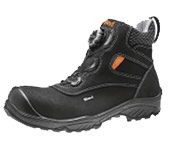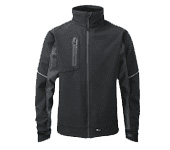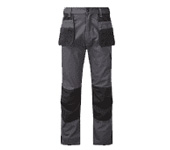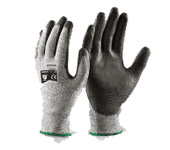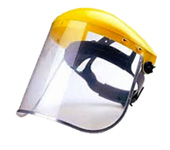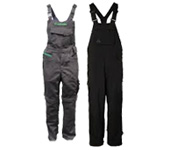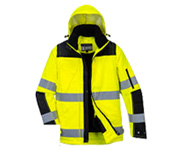Uncategorised
Steel vs Composite – Is there a difference?
If you’re looking to purchase safety boots, safety trainers or wellingtons, it’s critical to grasp not only the safety footwear codes, but also the materials that they’re composed of. Knowing the distinctions between steel and composite toe caps allows you to be confident that the footwear you’re buying is appropriate for your environment.
When browsing for new safety footwear and deciding on fit for purpose safety boots, you’ll notice that some feature steel toe caps while others have composite toe caps in their specs. Both of these materials are used to protect the feet from a range of hazards while at work, but what is the difference between them and which is the best protection for your feet?
Toe Caps Made of Steel

Steel-toed safety boots and wellingtons have a piece of steel in the toe area to protect the toes from a variety of hazards in the workplace. Steel toe caps are designed to meet European safety standards for a 200-joule protective toe cap. Steel toe caps provide greater flat protection than composite toe caps and, in comparison to composite toe caps, can essentially withstand heavier weights over the baseline safety requirement. It’s worth noting, though, that unless you’re working in a very hazardous workplace where items of huge weight could fall on or pierce your toes, you’re unlikely to be in a circumstance where your composite toe cap could shatter.
Steel toe caps are said to make safety footwear heavier and thus uncomfortable. However, safety footwear with steel toe caps has since been designed to be lightweight.
Toe Caps Made of Composite Materials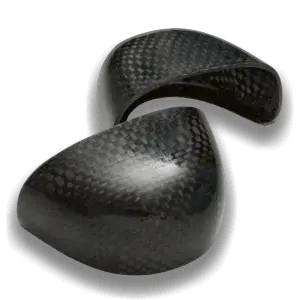
Composite toe caps are often lighter than steel toe caps and do not conduct electricity since they are metal-free. Instead, the toe area of the boots and the midsole are made of a composite material. Fiberglass, kevlar, and carbon fibre are examples of composite materials. Boots with a composite toe cap also meet the EN safety regulation’s basic standards for a protective toe cap with a 200 joule rating.
If you have to pass through metal detectors, such as in nuclear power plants, security, the courts, or airports, composite boots are ideal. Because the boots are non-metallic, they do not set off metal detectors like steel toe boots. That means time isn’t wasted by being checked numerous times while working.

